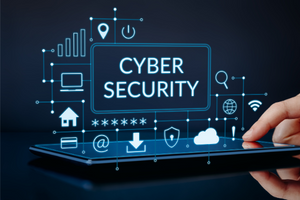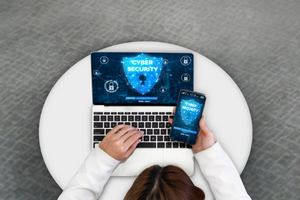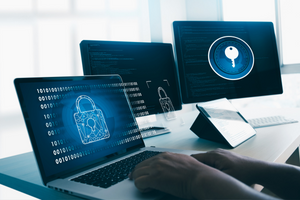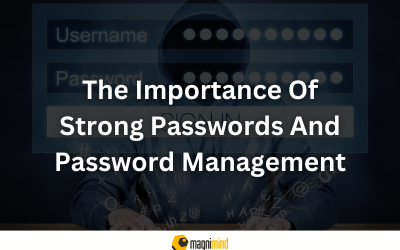Cybersecurity has become a trend in recent years due to the increasing reliance on technology and the internet in all aspects of life. With more and more personal and sensitive information being stored and shared online, there is a greater need to protect this information from unauthorized access and cyber threats.
In addition, the proliferation of connected devices, such as smartphones, tablets, and smart home devices, has created new attack vectors for cyber criminals to exploit. This also makes it easier for hackers and cybercriminals to access and exploit sensitive information.
Moreover, the rise of the Internet of Things (IoT) has led to an increase in the number of connected devices, which can also be vulnerable to cyber attacks.
The increasing frequency and severity of cyber attacks have led to a greater focus on cybersecurity measures to protect against these threats. This includes not just technical measures such as firewalls and antivirus software, but also measures such as employee training and awareness to help prevent accidental or intentional security breaches.
There are also several factors that have contributed to the trend of cybersecurity. One factor is the increasing frequency and sophistication of cyber attacks. Hackers and cybercriminals are constantly finding new ways to exploit vulnerabilities in systems and steal sensitive information.
Another factor is the growing awareness of the importance of cybersecurity. As more and more people become reliant on technology and the internet, there is a greater need for education and awareness about the risks of cyber threats and the importance of protecting against them. As a result, businesses, governments, and individuals are investing more in cybersecurity measures.
With the development of devices and the growing interconnectivity of systems, it can be challenging to keep track of all the potential vulnerabilities and protect against them. This has also led to the growth of the cybersecurity industry, as businesses and individuals seek out professionals who can help them secure their systems and protect against threats.
What if we don’t care Cyber Security
What if we don’t care Cyber Security
You may be at increased risk of falling victim to cyber crimes such as malware attacks, phishing scams, and identity theft resulting in serious consequences. Cyber crimes can have a wide range of impacts on individuals, businesses, and society as a whole. Some of the potential impacts of cyber crimes include:
Financial losses: Cyber crimes can result in direct financial losses through theft of money or valuable assets, as well as indirect losses due to reduced productivity, damage to reputation, and the cost of recovering from the crime. Businesses that do not adequately protect their systems and data may also be at risk of regulatory fines and legal liabilities. In some cases, a lack of cyber security measures may even put the safety of employees and customers at risk.
Personal harm: Some cyber crimes, such as identity theft or stalking, can cause harm to individuals by invading their privacy or causing emotional distress.
Damage to reputation: Cyber attacks that expose sensitive information or disrupt business operations can damage a company’s reputation and lead to a loss of customers and revenue.
National security risks: Cyber crimes can pose a threat to national security if they target critical infrastructure or government agencies.
Loss of trust: Cyber crimes can undermine trust in online systems and discourage people from using the internet or engaging in online activities.
The impact of cyber crimes can be far-reaching and can have serious consequences for individuals, businesses, and society as a whole. Overall, it is important to take cyber security seriously and to take appropriate steps to protect yourself and your assets online.
How to be more Cyber Secure
How to be more Cyber Secure
There are several steps that individuals and organizations can take to increase their cyber resilience and reduce the risk of falling victim to cyber crimes. Some best practices include:
Use strong and unique passwords: Use long, complex passwords that are unique to each of your accounts, and consider using a password manager to help you generate and manage strong passwords.
Enable two-factor authentication: Two-factor authentication (2FA) adds an extra layer of security to your accounts by requiring you to provide an additional form of authentication, such as a code sent to your phone, in addition to your password.
Keep your software and devices up to date: Make sure to keep all of your software and devices, including your operating system, antivirus software, and web browsers, up to date with the latest security patches and updates.
Be cautious about the emails and links you click on: Be wary of suspicious emails or links, and do not click on any links or download any attachments from unknown sources.
Use secure networks: When accessing sensitive information or conducting online transactions, make sure to use a secure network, such as a virtual private network (VPN) or a secure wireless network.
By following these best practices and taking a proactive approach to cyber security, you can significantly reduce your risk of falling victim to cyber crimes.
And the role of Cyber Security training
And the role of Cyber Security training ….
Cyber security training is the most important aspect of protecting against cyber crimes. It can help individuals and organizations develop the knowledge and skills needed to identify and prevent cyber threats, as well as respond to and recover from cyber attacks.
Some specific benefits of cyber security training include:
Improved awareness: Cyber security training can help people understand the risks and vulnerabilities associated with online activities, as well as the steps they can take to protect themselves and their assets.
Enhanced skills: Cyber security training can help people develop the technical skills needed to identify and prevent cyber threats, as well as respond to and recover from cyber attacks.
Increased confidence: Cyber security training can help people feel more confident and empowered when it comes to protecting themselves and their assets online.
Better compliance: Cyber security training can help organizations meet regulatory and compliance requirements, as well as protect against legal liabilities.
Overall, cyber security training can be an effective tool for helping individuals and organizations stay safe and secure online. It is important to regularly update and refresh your knowledge and skills in this area, as the cyber threat landscape is constantly evolving.



